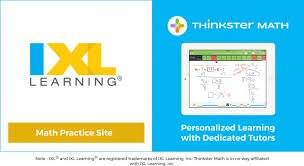
Did you know that personalized, recommended skills are powerful in effectively utilizing IXL, so I would like to show you how these "Recommendations" can help with intervention. We've learned from Dr. Tim Urden, a professor of educational psychology at Santa Clara University, that the four major principles of motivation are: competence, belonging, agency, and interest. I believe that the most vital of these four principles is agency. Let's take a closer look at developing agency for struggling students. With a sense of agency students have ownership over their learning process, and they understand that how they learn and what they learn is at least partly within their control, so let's look together at how IXL cultivates a sense of agency in students especially those requiring intervention. Essentially IXL's "Recommendations" are personalized, recommended skills based on individual student practice data. You can find "Recommendations" in your teacher account from within the top left corner of the math tab or at the top right.
"Recommendations" are available for all math skills and will suggest skills that will provide remedial or foundational help to students, provide next step suggestions when skill confidence is evident, and encourage continued practice within a skill to reach mastery. Students can see "Recommendations" in many forms. If a student's confidence wavers, IXL will suggest the student work it out with a supporting skill to boost their confidence. If mastery has been achieved within a skill, a proposed next step will appear as "Next up". With a SmartScore below 90 students will be encouraged to "keep at it", and continue their practice momentum. If a student has at least a SmartScore of 90, the "go for gold" recommendation will empower that student to practice to mastery. If a student does not have existing practice data they can "Try something new" with a suggested new topic "entry skill".
With so many areas to explore, students will be in the driver's seat of their learning, choosing skills that meet them exactly where they are, at their current level of understanding, within each skill. They'll be offered targeted, purposeful practice to help them feel confident and aid in their perseverance toward mastery of various topics. Pretend you are a student for a moment. Your teacher has asked you to work within a skill where you will need to multiply fractions by whole numbers using number lines. To answer this question you will already need to understand multiples of fractions, how to use number lines effectively, and to have all of your multiplication facts memorized, among other concepts.
If you struggle with any of these concepts you may feel frozen. Do you make a guess? Chat with a neighbour? "Recommendations" keep you in control of your learning, offering you immediate support at the bottom of the skill with instant recommended skills to help you stay confident as you work. With 36 students in my class I would have felt comforted and knowing my struggling students had supported their finger tips rather than waiting for me to walk over to their desk to provide that immediate assistance. By hovering over a recommended skill title you can see a sample problem from within that skill and personally decide if that skill offers the kind of support you need. In this skill you may choose M.3 to help you review multiples of fractions. If the support you need happens to fall below grade level many of the recommended skills will appear in lower grade levels too. After working within M.3 and reviewing multiples of fractions you may decide you're feeling confident and ready to return to the skill your teacher selected, M.5. You can see the skills previously visited in the bottom right giving you the opportunity to resume practice in a previous skill at any time.
If you need additional support you can choose from the recommended skills and practice until you feel better prepared to return to a previous skill. Overall you have ownership over how much time you take to answer each question, how much support you need by revisiting remedial recommended skills, and how ready you are to move forward in practice. There are other ways I suggest you try and use IXL to develop agency in your students. Encourage students to visit their own "Recommendations" page, hover over different skills, and have them click "Try This" when they're ready to dive into practice. Encourage your students to reach personal goals in practice. Have them answer 20 questions in a skill, or reach a certain SmartScore, or practice for a specific amount of time. Targeted goals mean targeted accountability within the score chart in their "Analytics" suite of reports. If students finish early or are working with family members to monitor progress at home, encourage the use of the "Progress and Improvement" report to monitor skills that may be revisited, or create the opportunity to praise them for skills mastered.
I recommend using our Certificate Center to print personalized certificates for your students, create an IXL achievement wall, or email PDF files of certificates to family members, or even recognize struggling students on a regular basis. You have so many options. In your quest to provide the most effective support and intervention for your students. IXL's recommendations will provide the tools for developing a sense of agency, helping them "own" their learning processes with targeted practice. IXL's "Recommendations" will give them control over how and what they learn, providing personalized suggested skills without locking them into a pathway not suited to their needs. By design there is no better support system than IXL's "Recommendations" as an intervention strategy for your students' practice. Check out IXL!
As found on Youtube
Posted from my blog with SteemPress : http://eamonnmcevoy.com/developing-agency-using-ixls-recommendations/

